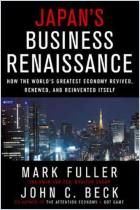In this thoughtful work, Kengo Sakurada, CEO of Sompo Holdings, Inc., applies the ancient samurai code of Bushido to the challenges of a world coping with crises. He calls for rethinking capitalism, and supports a restructuring, informed and guided by the Bushido virtues: justice, courage, benevolence, politeness, veracity, honor, loyalty and self-control. As Sakurada explains, those virtues would manifest quite differently in a capitalist system than in the feudalism of old Japan.
The Bushido code is made up of justice, courage, benevolence, politeness, veracity, honor, loyalty and self-control.
More than 100 years ago, a Japanese educator and economist wrote Bushido: The Soul of Japan, about the code of the samurai. He suggested the code could inform other professions. If businesses today would adapt the Bushido code to contemporary times, it could provide structure and moral guidance for steering capitalism to solve some of the most vexing international problems.
The modern world offers an infinite number of choices and instant gratification. Modes of doing business have changed rapidly, and few of today’s most successful companies existed at the turn of the 20th century.
During the 1900s, a “great acceleration” brought massive changes in communication, technology and travel, as well as rocketing growth in the stock markets. While these developments included praiseworthy advances, this surge had a dark side, too, such as the unequal distribution of wealth.
Capitalism is unsustainable without redefinition and reformation. ...
Kengo Sakurada is Chairman/CEO of Sompo Holdings, Inc., a Nikkei 225 company, and President/Group CEO of Nksj Himawari Life Insurance Company. He also serves as chairman of Keizai Doyukai, the Japan Association of Corporate Executives.















Comment on this summary